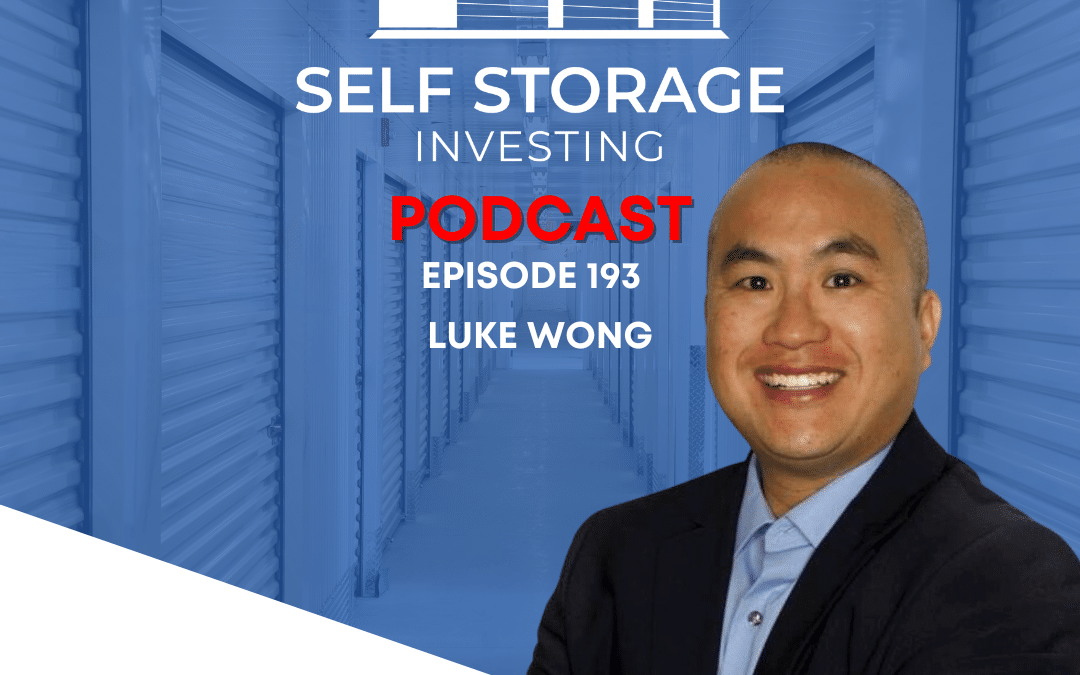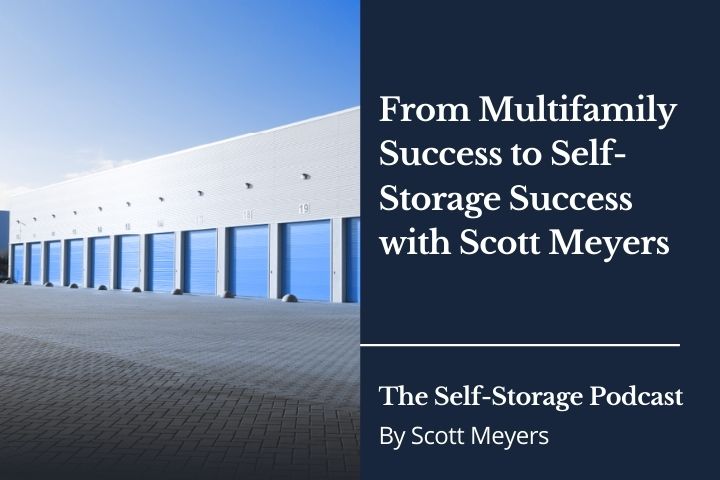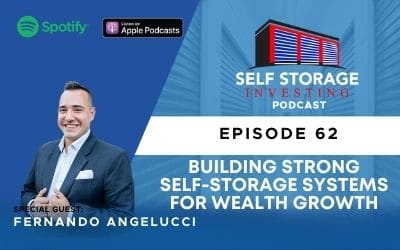This is a Replay of an episode first published in October 2023.
Are partnerships in self-storage the key to scaling up, or is it better to go solo?
In this episode, Scott sits down with Luke Wong, a self-storage entrepreneur who has made a name for himself in the industry.
Luke shares his journey from real estate flipping to his successful leap into self-storage investing. He dives deep into finding good partners, overcoming health and market challenges, and the power of networking in the self-storage world.
This conversation is packed with real-world insights for anyone looking to start or grow their self-storage business.
WHAT TO LISTEN FOR
4:50 – Transitioning to Self-Storage
16:35 – Taking the Leap with Partnerships
19:53 – Benefits of Good Partnerships
29:50 – Patience in Finding Deal
GUEST: LUKE WONG
Website | LinkedIn | Instagram | Facebook
Leave a rating for this podcast with one click
CONNECT WITH US
Website | You Tube | Facebook | X | LinkedIn | Instagram
Follow so you never miss a NEW episode!
Leave us an honest rating and review on Apple or Spotify.
Episode Transcript
Luke Wong (00:00):
I have a good feeling when you’re talking to somebody or when you’re working with somebody, I think that your gut has a lot to do with that.
Announcer (00:17):
This is the Self Storage podcast where we share the knowledge and skills from the industry’s leading investors, developers, and operators to help you launch and grow your self storage business. Your host, Scott Myers, over the past 18 years has acquired, developed, converted and syndicated nearly 5 million square feet of self storage nationwide with the help of his incredible team@selfstorageinvesting.com, who has helped thousands of people achieve greatness in self storage.
Scott Meyers (00:52):
Hello everyone and welcome back to the Self Storage Podcast. I am your hostess Scott Meyers, and today’s guest is none other than Mr. Luke Wong. We’ve been wanting to have Luke on the show for many reasons. Luke is one of the connectors in the industry. He has done an incredible job since he got into self storage to really make a splash and make a name for himself. So Luke has done an incredible job of being both a communicator and a networker. He has taken social media by storm in the storage world as well, and also formed a clubhouse and has been a guest on others as well as many other podcasts. And so if you’re in storage and you haven’t seen Luke Wong, well then you haven’t been looking very hard. And so without a further ado, I want to introduce you to Mr. Luke Wong, who’s going to share a little bit about his story and his start incel storage. So with that, Luke, welcome to the show.
Luke Wong (01:39):
Thanks, Scott. Thanks for having me. Always great to meet with you and talk with you and again, thanks for all you do for the industry. So I’ll give you a little, little backstory. I guess I’ll start off how I started in real estate actively in 2001 when I moved from Florida to Houston and I worked for another relative doing land acquisitions for residential subdivisions. So I would be responsible for acquiring the land and they would go ahead and buy it and work in municipalities, the utilities and streets and so forth, and then sell it to builders. Then around 2011, I went into single family house slipping and wholesaling. I did a lot of renovations at that time and did that for buff five years. And then the market kind of took a little bit of, had a little hiccup, the oil prices was creeping up and that slowed down the price range I was flipping houses in.
(02:41):
And then we also had the tax day flood memorial day flood, so it’s back to back floods. And then on top of that I got sick, I had some health issues, and then my dad passed. So the next few years, 2016, 17 were kind of just recuperating and trying see exactly where and how I wanted to come back into the real estate industry. That’s when I started the wholesaling operation to kind of see what was out there because the renovations and flipping houses, the climate had changed. I did that for the next year or two and then I started looking into commercial real estate. I wanted to do something else. I was getting a little burnt out on residential single family and also looking for different opportunities to learn and grow. And that’s when I invested passively in three different asset classes, three different operators to kind of get a taste of which direction I really wanted to head.
(03:43):
The first one was self storage syndication that I was a passive investor in Conroe, Texas. So it was close to home that was with one operator. And then I invested in a apartment complex in Dallas with a different operator and then a shopping center with another operator. So I kind of got to see a little bit of background of a lot of how they put those deals together and financials not as much daily operations. And then when I decided storage is the one that really fit my personality the best in regards to not very management intensive, and I thought that would be the best fit. And then that’s when I went searching to how am I going to learn more and take it to the next level. And that’s when I found you and I’m so grateful I did, my brother and I attended your academy in Indiana and and I just kind of reassured the decision I was making.
(04:50):
And shortly thereafter I joined a mastermind. I was already doing some marketing and I landed my first facility in 2020 by just doing what you described. And what we did in wholesaling is just marketing to those facilities. It was a yellow letter, nice retired couple that wanted to retire, and they lived right behind the facility and they were willing to own or finance it for me. And yeah, that was the real start. The academy really opened my eyes up in regards to what resources we had out or look at it, the underwriting part. That was huge because as much as you can read or listen to YouTube and unless you start doing it or have somebody else looking over your shoulder and kind of just doing a double check. At one point I was think I was being a little bit too conservative because used to buying houses at a deep, deep discount.
(05:51):
So when doing the underwriting was different for me learning. And then when I was like, I don’t know, I’m so used to getting things really, really at a deep discount for the houses. But then when Catherine’s the one that was doing the underwriting class at the time, she’s like, man, that one, it’s like a good one. I’m like, yeah. She goes, if you don’t want it, I got three people line. I’m like, okay, let’s do it. And it really turned out to be a great one. What started it all and then from there I partnered up with another operator that’s bigger than I and doing really well and I took a bigger one. That one is probably a good, I dunno, five times the size of the first one I took down. And that was within a year later. And then after that in 2022 with the same partners and some little bit different arrangement with some other partners in the group, I was able to take down three facilities in Tyler.
(06:57):
So in 2020 to 21, 22, and now we’re at 23 and I’m owning and operating these five facilities remotely with the partners, but I’m the one that’s actively managing everything. And yeah, it’s been a great ride, a great learning experience. I mean the people in this industry are also wonderful. I think the industry itself is just caters, I don’t know the personality of everybody’s just willing to help. Even if your competition is three to five miles, they’re still willing to help. I was actually one of the facilities we took over in Tyler since we do remote management, I was going to have to let the lady go and she didn’t know, and of course I want to help as much as I can. I kind of felt bad. She didn’t get any warning. So then of course, this is the power of the mastermind. Scott Lewis is in the same area, called him up or I texted him, I go, you need somebody because I got a manager and I can’t, my model doesn’t account for her.
(08:10):
And they met, they worked it out and I think she’s still working for them lately. I talked to her maybe about 10 days ago. And so it’s worked out. So that’s the type of relationship you get from the mastermind, the kind of network of people that you surround yourself with. But in addition to just the self storage industry, just because when we’ve done the clubhouse with James ad, it’s just amazing how much you learn whether you’re going to apply that knowledge now or in the future, but just the connections you create virtually. And Clubhouse is just a audio app, but when I met these people in the Vegas shows, we an instant. We’re already friends. So it just made it that much more closer connection when you get to meet them in person. But yeah, I know you’ve been able to help a lot of people start off their career, so I just want to say thank you for all you do and what you continue to do and yeah, it’s been a great ride and just looking forward to keep on growing and sharing.
Scott Meyers (09:23):
Well, that’s my pleasure and thank you Luke. And it is truly people like you and individuals and then of course students who come through our academy, as you mentioned, that actually go out and do it. So kudos to you and hats off to you. It’s one thing to come to these events and come to the trade shows and I feel, and maybe this is just me, I’m not trying to talk down upon the generations coming up after me like my grandfather or whomever, but I do see that there is a lack of grit and a lack of will to go out and do hard things and do the heavy lifting that it takes to get a business up and running. Even a business that is, again, this is not a simple business by any stretch, but it it’s a fairly predictable business model that you can set up and if you follow the steps and execute, you can be successful at.
(10:14):
And still to this day, I’m always shocked at the small percentage of people that come through our academies that actually go out and do so to you, the one who went out and executed amongst the others. We’re just so happy to see your success and especially to have you as part of the mastermind as well. And you’re right, when I get into this industry back in 2005, coming from similar to you, coming from different asset classes, I was active in single family, we would buy them and fix ’em up at a random, so the bur method before it was called the Bur method and then get into houses and office buildings and apartment complexes and firsthand seeing what it was like to own those asset classes and run ’em. And then to come into storage and to understand that it is more recession resistant, there’s fewer moving parts, but that there were so many people in this community of self storage that are so willing to share so much.
(11:11):
And we’re all friendly competitors. We don’t share a hundred percent, but most people share 90 to 95% of what they’re doing, and then the other 5% is their secret sauce. And we usually don’t compete with each other directly in the markets many times for deals or in terms of operations because our footprint is so small for a storage facility. And so I think by nature, not only the way it’s set up, but just the incredible individuals that are in the industry lends itself to being able to build a big network of people that truly can help. And as they say, your net is your net worth. And it’s just been great to see everybody including yourself, Luke, that’s in our mastermind, be able to utilize that. That is a very small but elite group of folks that are out doing some really cool things and doing it and doing all kinds of business with each other.
(11:57):
But I want to go back to your experience at the academy and just touch on something from your standpoint that I think people needed to hear again. And that is you were used to getting incredible deals on single family houses to be able to wholesale or to flip 50 cents on the dollar or less depending. I don’t know how good you were on what those margins look like. And then when you get into commercial real estate, well, on the surface, those margins just aren’t there. But it isn’t until you look under the hood and truly see a facility for what source today, but more importantly, where can you take it in two to three years? It’s a little longer runway than a single family house, but it also has a lot more commas and zeroes and rewards behind it. So tell me, as you begin to get accustomed to underwriting and looking at self storage facilities versus how is your, I guess your viewpoint and your skillset when it comes to underwriting evolved over the years?
Luke Wong (12:51):
So yeah, that’s a good question. Yeah, I mean, self storage is a longer plate and with the wholesaling and flipping, it’s a real quick pop, but then once that pop is there, it’s gone, then you got to do it over again. And your right cell storage has a bigger, longer term. And the pup could be 10 times the amount, but I guess it was getting used to having to be a little bit more patient because when you wholesale something, you could be 30 days and you’re getting paid or you rehab a house 60 days when you can double your money. But then again, it’s gone. And so the sell storage for me is a long-term play all long-term holds. Not to say one day we won’t exiting some, I don’t know what the future holds, but as of right now, so as the debt gets paid down, the expenses get lowered, get more efficient, and then it’s just going to be able to help me grow even more because then we will refinance that and go get another one.
(14:06):
And in the long run, 10 years from now, it’ll be look a lot different than where I started and without having to go hunting every single day, I would probably, I don’t feel myself would be the one that will just retire or not do anything because I’ll always be on a hunt, whether it be some sort of real estate, but not having to be out there hunting every day. That’s where I strive to be at. And the cell storage facilities especially, I’ve gone through some health issues and if the cell storage wasn’t there, it would make things a lot more complicated because I’m not passive by any means of myself storage, but it is, I get to arrange my days and it’s there for me while going through these adjustments when needed.
Scott Meyers (15:01):
Well look, and we’ve been following that and so glad that you are back in the full swing and that a change of venue was just what you needed to be able to do that. And in the meantime, as you mentioned, storage again, it is provided, oh gosh, it’s been a true life preserver for many people in their businesses because it doesn’t, it’s not that active of a business that you can put some people in place to be able to run these for you while you either vacation or take care of your health or whatever may come up. And that is one of the reasons why we got into the business. And probably the main reason is that my wife and I wanted to have time to raise our kids and we didn’t want to be tied to a 40 hour a week W2 job or a 60 hour a week job as an entrepreneur, our own business growing because it was so needy.
(15:51):
And that’s what we love so much about self storage is the ability and the flexibility to do that as well. And you saw that in order to get to your goals in doing so, I think maybe earlier, certainly earlier than myself and also earlier than many people, that in order to reach those goals and to have more time for yourself to do the things that you wanted to do, which just grow and is to find a partner. And so your second facility, you sought out a partner and you bought a much larger facility. Tell me a little bit about, I think more, I guess more of the mindset behind that because I think many people, including myself in the beginning, they feel like, well, I’ve heard about bad partnerships and people getting into lawsuits and losing everything and ugly disputes and it takes years off their life because of the stress.
(16:35):
And I ran into an old gray haired gentleman early on in my career after I had been investing by myself for years and kind of adopting that mindset. He said, I can’t imagine ever investing without a partner or partners and I would never be at the place where I am right now if it weren’t for the partners that I took on. And he was at a very, very high place in terms of real estate investing in what his net worth was and what he had accumulated over the years. So if he could, let’s go back to that second facility and tell me about your mindset. Did you seek out a partner and recognize that this is in order to grow and scale, that you needed some help along the way or was it you had no other option if you were going to grow, was to go that route? Share a little bit about your journey there. So
Luke Wong (17:15):
I had met this fellow Dave and kind of follow in on social media too, and if we’ve talked a couple times, and I just liked the way he was operating. So we’ve kept in touch and always reached out to see how we could work together. And I had my first facility and I knew I wasn’t, again, we want on the first facility. It was about a year after I took down the first one. The second one was a year later I was in any rush to go grab a, I was just getting my feet wet, under control, kind of comfortable. I was starting to market again and to see what else was out there. And then I guess the timing was just right. He’s like, well, just facility down the area. Let’s take a look at it and let’s go after it. I’ll partner with you.
(18:10):
And it’s one of those, again, coming from the wholesaling single family days, I’m looking for something that means a lot of work or value add. And this facility wasn’t it, it was like a class, maybe B, high B class. It was price that market have room to expand, but we knew where we could come in and work, be efficient with regarding to remotely manage it. It didn’t need any work. I mean, it was built in 2017, so everything was pretty new and it would not have been one of my first ones I would be looking at for my second one.
(18:52):
And just talking with Dave and just having a feeling and comradery and just, I mean, you have a good feeling when you’re talking to somebody, you’re working with somebody. I think that your gut has a lot to do with that because even passively when I was investing, I was trying to vet the jockey more than the horse because a good operator can turn a bad facility around, but they can also take a good facility and just make it really bad. And I know I’ve heard those stories too, and partnerships going bad and things happening and small JVs that I have done haven’t always worked out. And I think that’s always a risk, but then there’s always risk of you staying still. I don’t think I would’ve able to grow that quickly, that fast. I would’ve grew probably at a different level, but it’s just now brought me more out of my comfort zone to go after bigger and better things.
(19:53):
And I’ve learned a lot, we’ve both learned a lot from each other and we continue to grow. Just came back from a weekend event that he had some of his operators come. We flew in and spent some time with him and some of the partners at his house in Minnesota. And yeah, it’s a great network of people even though I’m just directly involved with the five facilities, but I mean over a hundred, maybe 25 facilities we’re all connected one way another, and we all helped each other out. And with the right partner, you can go far and with anything things can go bad mean, but then again, if you wait and just always play it safe every time, even though that’s not safe, I mean even if I wasn’t by myself, something could have happened. I could have made a big mistake and things could have went a different way. So you just really never know. And I’m willing to be out of comfort. That means that I’m growing. And yeah, I think anybody needs, whether it be business or life itself or personal, I don’t think you can really do anything by yourself because either you’ve got a spouse or a partner and they’re helping you raise the kids or go through life together. So if you’re really doing it solo, you’re limited.
Scott Meyers (21:27):
I would agree. For all those reasons. You don’t know what you don’t know, you don’t know your blind spots. And when you pull resources together, that makes life so much easier in terms of sometimes lack of competition, if there’s several people that decide to partner together versus fighting over deals in a marketplace, but also combining your net worth balance sheets and your bankability when it comes to lending and borrowing, that just makes life a lot easier if you have more resources to be able to take down more deals. And as this thing goes, and as you’ve heard me say several times from the front of the room at our mastermind, a hundred percent and nothing is nothing. And so put your pride aside, your fears aside, and all the stories that you’ve heard from other, the naysayers who never got up to bat or took a swing and as you mentioned, never did anything. Sitting still is just not an option. It’s certainly not utilizing your best resources, which is your ability to move forward. So to do so, but to do so with a proper due diligence and just making sure that there’s a fit is certainly a better way to go.
(22:30):
When looking at, I don’t even want to say advice for people that are looking at partners, but from your experience and what you’ve seen, what makes a good partner or what is the proper due diligence that one should seek when they’re looking at getting on equal footing with somebody that’s going to be at the same level making decisions together on a project.
Luke Wong (22:48):
Even the, I mean active partners that I have now, but even the passive ones, I’ve watched them from afar from a while before I made any decisions to actually do something. But when I was ready, I just called them up and say, Hey, you may not know who I am, but I’ve been following and I’m ready to work together. So not just looking at just the business, but how they treat other people in their personal life or how they do take time with the family. And just hearing from other payers, it’s really observing what they’re doing, how they’re doing it, how long they’ve been doing it, do you agree with the way things are being run or how they carry themselves or the core values are.
(23:41):
And then again, a lot of assets do trust your gut. Sometimes everything’s going right on paper and you think, well, your gut’s telling you just something right here. And that’s usually a good sign to back up and take a look. So I’ve come across that situation too, where everything looks fine on paper, but then something will feel right. And usually I’m glad that we didn’t step forward. So I would say trust your cut, but do your due diligence in all areas, not just their business, but then who they are because that carries over. It’s all connected.
Scott Meyers (24:21):
I would agree. One of my friends says that if they’re getting ready to do business with someone, if it’s at all feasible, if they’re close to the same city, if they’re flying in, if it’s a big deal, they invite ’em over. And if their dog barks at ’em or growls, then they’re out. They’re not going to do business with them. So there’s another litmus test for you. But it is interesting, Luke, you do need to see how people act not only in business but elsewhere. So if you begin to follow ’em around on social media and try to get a sense for who they are and what they believe in and what their values are, that’s very important. But I found it interesting many, many years ago at one of our self storage academies at a gentleman that came up to me on the third day and he said, Hey, this has been a great event.
(25:03):
He said, but I don’t think I’m going to move forward and actively invest in self-storage. And I said, yeah, well, why not? He said, well, that’s really not what I came here for. He said, I came here because I wanted to invest passively in one of your syndications. I just wanted to come and meet you and your team to see if you were the real deal. And if the Scott Myers that showed up on social media and elsewhere on the internet, it’s the same Scott Myers in person. So I came here to basically watch you, and hopefully I’m not creeping you out, but I watched you interact with your staff on stage, off stage, behind the scenes. I watched how you interacted with the hotel staff and other people that maybe some people would think are below them. And certainly I won. He ultimately ended up investing in with this passively, but I wouldn’t expect some people to do that amount of due diligence.
(25:52):
But you kind of have to. And I can look back and certainly there are times when I’ve entered into partnerships or joint ventures and I hadn’t done enough due diligence to find out that perhaps those folks didn’t treat the hotel staff very well and they weren’t going to treat me very well, or that there was just a little chin in their armor and the level of integrity that I thought they possessed. Maybe it was a little less than my expectation. And so you really can’t do enough because partnerships, depending on what level, if you’re on equal footing your general partners in a deal, it is kind of like a marriage. You’re spending a lot of time together making decisions together that have big consequences, good or bad. And so it’s always good to know the person you’re getting into business with. And even some limited partners, there’s some folks that we wish we wouldn’t have taken on, even though they’re limited partners and they don’t essentially have a say in things, they can certainly make your life miserable if they just decide to create a ruckus.
(26:43):
So it is important to vet people. Oh yeah, absolutely. So Luke is the time that we’re heading into right now, depending on who you talk to and where you view the economy and the industry and self storage right now with interest rates where they are maybe staying static for through 2024, maybe going up another quarter of a point, but heading into an election year, maybe coming down and beginning that turn, how are you approaching the market? Has this changed your approach or how are you viewing 2024 in terms of opportunistic? Or are you kind of sitting back and just kind of waiting to see?
Luke Wong (27:20):
Well, a little bit of both. I think it’s opportunistic and sitting back, I’m not aggressively looking for deals, but I’m keeping my air open and I’m talking to people because whether the time is now or later, you got to plant that seed because the first facility I got with that yellow letter, six months from the first contact to close it, and most of it was just relationship. I didn’t have any bank to do. It was just making our field comfort. And I think that’s the same thing now. I mean, there’s still deals out there, probably a little bit harder to come and harder for, the banks are making a little bit more stricter and the numbers are a little bit tougher to make it work with those rates. Then you look at the seller finance possibility because there’s always people that situations are changing. So right now, for several few months, if not a year, just really focusing on tightening the existing operations and maximizing those.
(28:27):
So when the opportunity does come, I’m not having a heavy lift to keep any renovations going, got the systems and is a lot smoother where now you can spend more time on the acquisition part. So I’m planting seeds, keeping my eyes open, and not in a rush. And even one facility, that one in Magnolia, we took a little pause, the rates went up on the construction on expanding that facility. So that time is coming up again to go ahead and open that project back up and get that going. So really, yeah, nothing, no rush decisions and seeing what’s out there. And if something does work, then we will plan and move forward, but not aggressively look. So I don’t want to, I think there’s still a little unknown happening and the market might soften up and people probably haven’t come to reality at some of the sellers and still thinking it’s a year and a half ago where they can get the high price that they were wanting just can’t work right now. So a little bit of both, just waiting, but still keep my eyes open and looking
Scott Meyers (29:50):
For opportunity. Well, I would say that’s a good strategy right now. We know that there are some troubled loans out there and there are some folks, some owners that didn’t create enough value and they are going to face some pressure from the lenders when it comes time to refinance, and they may not have the cashflow that they had anticipated. And there’s going to be some opportunities out there as well. And also being patient and letting the market come to you and not really rushing in is also good. So Storage Nation, you’ve been listening to Luke Wong and I have had a front row seed to be able to watch Luke not only come through our academy, but also be an integral part of our mastermind, and then to see his success and to grow and to scale by way of, once again, just mastering the art of networking and picking good partners and then being opportunistic and not to eager to rush in. So Luke, as we wind down here, first of all, what are the ways that people can get into contact with you if they want to follow you and see what you’re up to?
Luke Wong (30:44):
So the best way, I’m pretty active on Facebook, Luke Wong, you can reach out to me there. I will instant me post in some of the groups that I’m in. We have a self storage clubhouse group that’s specifically on self storage and the guests that we have on our clubhouse show on every Tuesday at 9:00 AM. But yeah, so I’m very active on Facebook. Feel free to reach out and yeah, I’ll be glad to help as best I can.
Scott Meyers (31:13):
Perfect. Thank you Luke. And folks, we will include that in the show notes as well. And so Luke, for those that are looking to perhaps start in cell storage or looking to scale at the level that you have and do it so quickly, what is one piece of advice that you would like to share with Storage Nation?
Luke Wong (31:29):
Find a mentor like yourself or go to an academy that you have going on because you’re surrounding yourself with the right people and that puts you in touch with all the resources to have that confidence to go ahead and jump off the cliff. Because even when you do single family housing, it’s a lot of people are hesitant to pull the trigger and the best way to learn is actually doing it, but with the right people.
Scott Meyers (32:00):
Yep. Agree a hundred percent Luke. So appreciate that as well. And folks, if you don’t get education through our organization, then get it somewhere. I think far too often people are looking to be able to replace an education in commercial real estate by going and watching some YouTube videos. And I’m here to tell you folks, that is not enough. And there are many folks out there that profess to be experts that, well, they just aren’t up to snuff. And so make sure that you are getting the right education, the right amount before pulling the trigger. So that’s my public service announcement. So Luke, once again, thank you so much for your time. Looking forward to seeing you back in the room at a future mastermind, but in the meantime, get everything buttoned up down there in Texas and enjoy your time in Colorado and looking forward to connecting with you again very soon. Thank you so much, Scott. Always a pleasure. Alright, thanks Luke. Take care.
Announcer (32:54):
Hey gang, wait three things before you leave. First, don’t forget to follow the Self Storage podcast and turn on your notification so you never miss another episode. And while you’re there, please leave us a five star review if you like the show. Second, be sure to share your favorite episodes and more via Instagram and don’t forget to tag us. And lastly, head to the links in the show description and hit follow on Twitter and Facebook to get a front row seat as we grow and scale our business and bring you along with us.
















